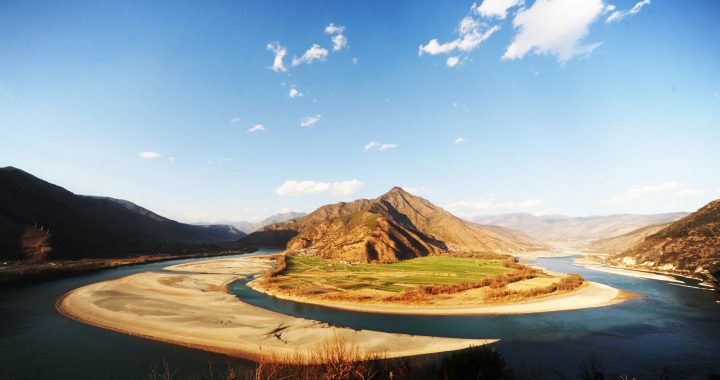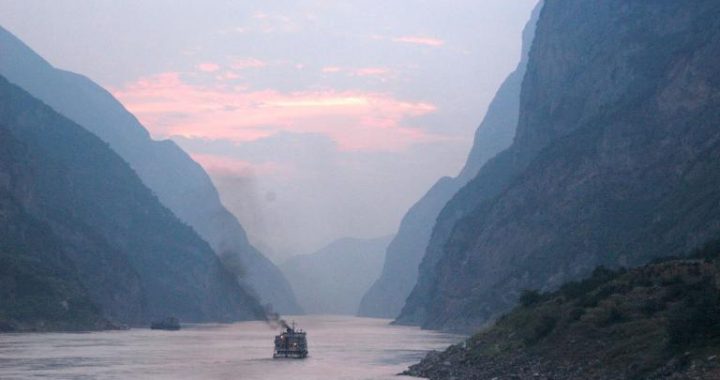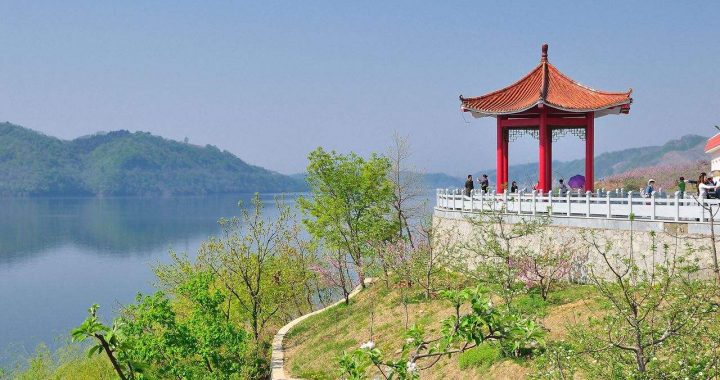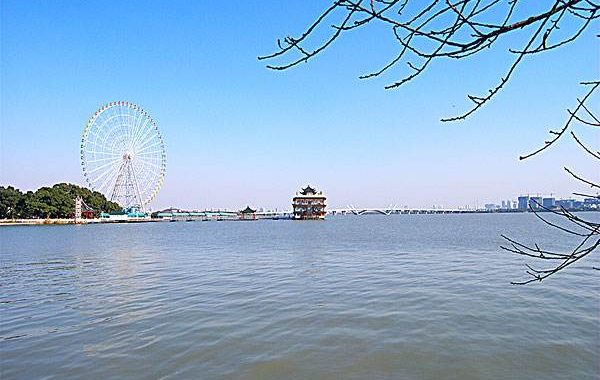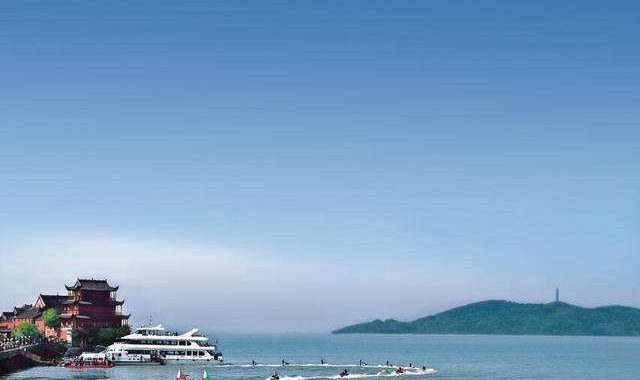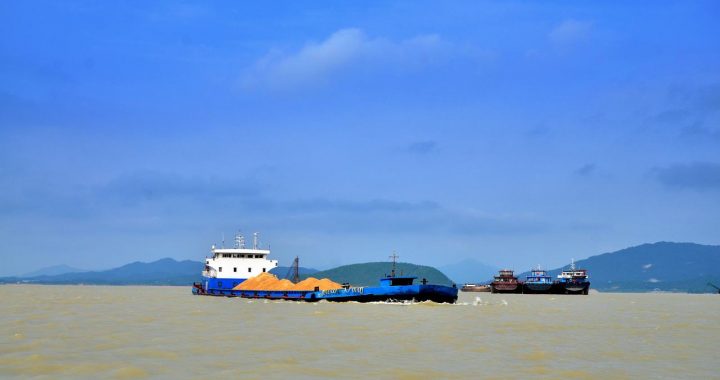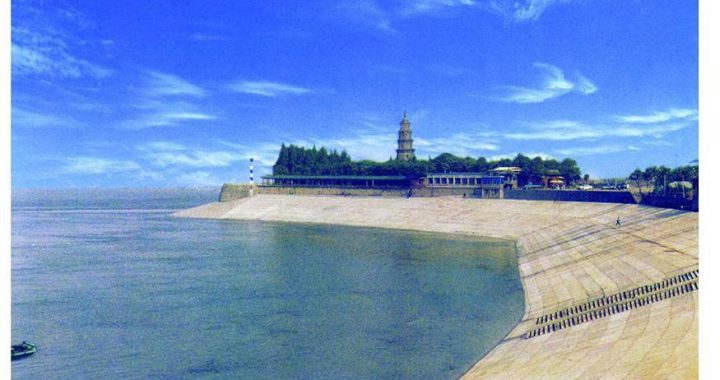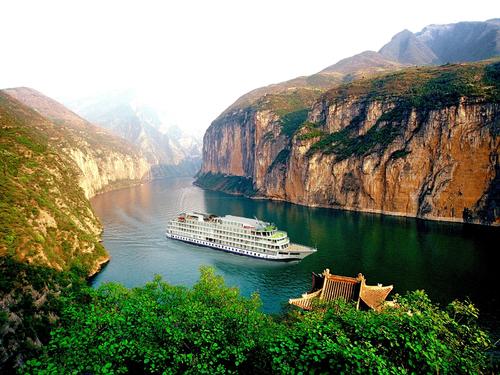Dongting Lake
6 min readMighty is the Yangtze River and vast is the Dongting water.When one looks afar,Dongting Lakeis“bordered by distant mountains and fed by the Yangtze River”.The Dongting Lake,vast and vague on the misty water surface,is really the Emerald Lake on earth.In a sunny day,one can watch white gulls flying on the water and fish swimming in the water,and enjoy the beauty of luscious dahurian angelica and orchid.Basking in such a beautiful scenery,no wonder the literature giant of the Northern Songdynasty(960-1127)Fan Zhongyan,could come up with the immortal sentence of“Be the first to worry about the troubles across the land,the last to enjoy universal happiness”.

Dongting Lake, the second largest freshwater lake in China, leans against the south bank of Jingjiang River and locates in the border area of Hubei Province and Hunan province.
About 70 milion years ago, the Yanshan Movement fractured the lake area, dividing the lake into two, one east and one west.
Two million years to 600 thousand years ago, the lake area sank and the lake basin expanded, making the di-vided two lakes into one again.
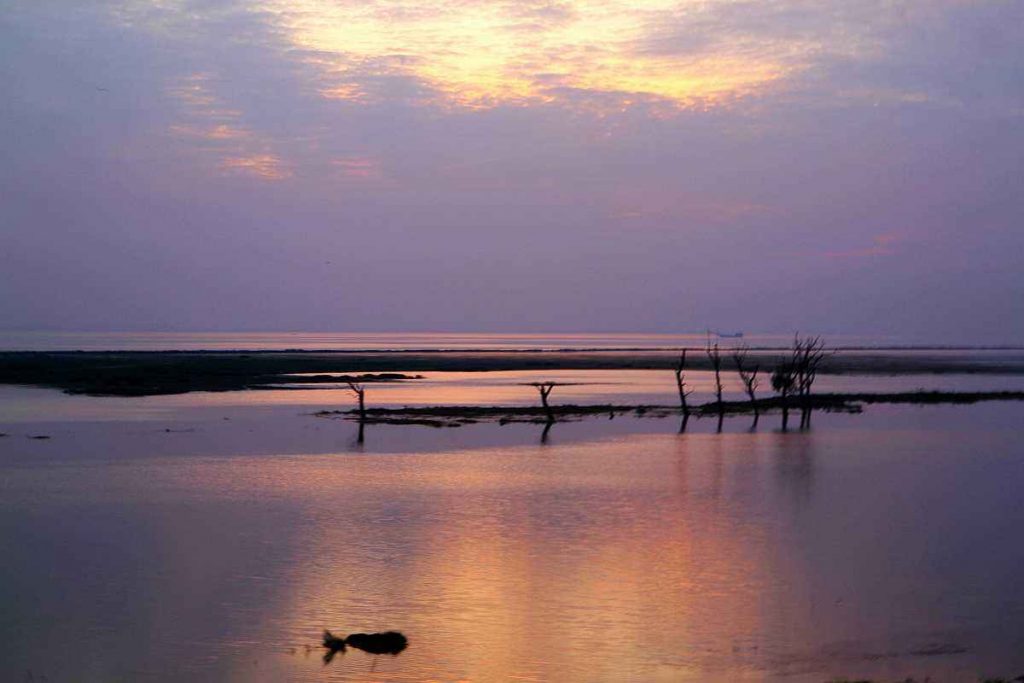
In the Three Kingdoms Period, Wei, Jin, Southern and Northern dynasties (220-589), wars broke out in north China, and people had to migrate southward. Large num-bers of migrants and chaos of wars severely damaged thevegetation in the Yangtze River Basin and increased the sand and silt deposit in the river, therefore Dongting Lake was silted up unavoidably. The originally whole Dongting Lake was divided into three lakes, the east Dongting Lake, the Qingcao Lake in the south and the Chisha Lake in the west. Therefore, Dongting Lake is also called “Sanhu Lake”(literally means Three Lakes). However, Dongting Lake was not divided completely. In the high water sea-sons of summer and autumn, waters of the three lakes riseand overflow the sand and silt that divided them, and re-united again, just like three separated brothers that unite periodically. When the three lakes becomes one, it has an area of seven or eight hundred li, therefore there is the name of “Eight-hundred-li Dongting”.
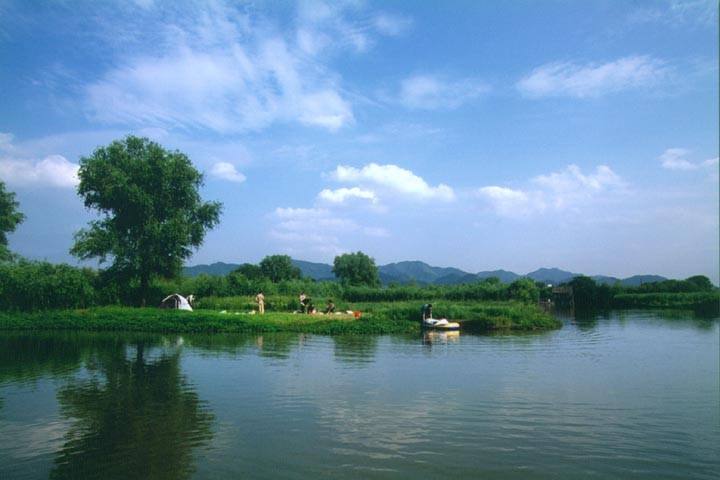
In the Tang and Song dynasties(618-1279), especial-ly from the late Tang dynasty to Southern Song dynasty, the political situation was very unstable, wars and alterna-tions of dynasties were frequent, and people had to migrate southwards again. With the inflow of large amounts of mi-grants, the plain area in Hubei province and Hunan province were greatly explored and developed. In order to settle down, people built dikes along the Yangtze River to facilitate irrigation and reclaim land from lakes to enlarge farmland. All these actions accelerated the silting up and shrinking of Dongting Lake.
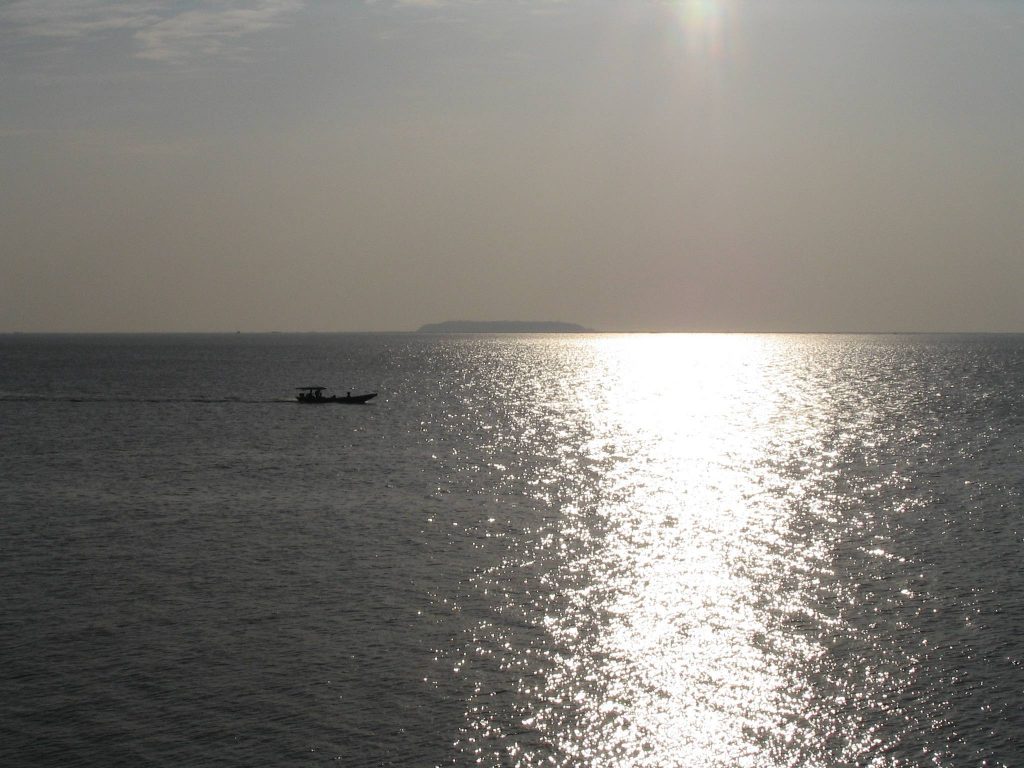
In the Ming and Qing dynasties(1368-1911), Dong-ting Lake’s silting up became much worse, with many shoals and sand land appeared in the lake. Even during the high water seasons in summer and autumn, the lake’s size could only reach 500 li. In winter and spring, the low wa-ter season,a large part of the lake would dry up, and shoals and ditches would surface. Due to the serious silt accumulation, the Junshan Hill in Dongting Lake began to border with the land in the north. Thus, the floodwater storage capacity of Chisha Lake in the west was lost, the Qingcao Lake in the south moved further southward, the east part of the east Dongting Lake was corroded and its storage capacity became reduced.
During the rule of Kuomintang (1911-1949), the land-lords all reclaimed land from the lake, resulting in the shrinkage of almost one third of the lake’s size.
Until the beginning of the 2lst century, Dongting Lake could still be roughly divided into three lakes in the east, south and west, with the east Dongting Lake being the largest.
Why Dongting Lake was named “Dongting”? It is be-cause of Junshan Hill in the lake, where the ancient people considered lived god. So they called Junshan Hill “Dong-fu-Zhi-Ting(the Abode of Immortal)”or Dongting Hill,
and named the surrounding lake Dongting Lake.
Then why Dongting Hill was called “Junshan Hill”?
It is said that the Emperor Shun in the ancient time died on his inspection tour to the south, for which his two concubines E’ huang and Niying grieved. They climbed up to Dongting Hill and looked into the distance where EmperorShun died. Watching thevast Dongting Lake and thinking that their husband could never return, they mingled their tears. Their streaming tears shed on the The moted bamboo bamboos in Dongting Hill.
From then on, bamboos there all bear mottled tear stains, so people called them mottled bamboo. Under the vast sky, with the lonely moon and cold wind, the bamboo leaves whispered in the rustling bamboo forests, as if they were sobbing. Later,E’ huang and Niying, being extreme-ly grieved, drowned themselves together. People honored them as goddess with the name”Xiang Jun”, so Dongting Hill was renamed”Junshan Hill”and some people also called it”Xiangshan Hill”. In Junshan Hill, people set up a grave for E’ huang and Niying. The couplet in front of the grave wrote:”Jun-fei er-hun fang-qian-gu, Shan-zhu zhu-ban lei-yi-ren”, meaning “the two concubines died with a good name for posterity, the all spots on the bam-boos were the tears for one person”. Combine the first word of each sentence and there goes”Junshan”.
In Junshan Hill there is a well called”Liu Yi Well”.
The water in the well is limpid, sweet, refreshing, and in-exhaustible all the year round. What the well fills with, be-sides the refreshing water, also is an old but beautiful leg-end. It is said that a scholar called Liu Yi met a doleful shepherdess when he was passing by Dongting Lake. He came to her and learned that the shepherdess was thedaughter of the Dragon King in Dongting Lake, and af-ter being married to her mortal husband, she was mal-treated and lived a miserable life. Liu Yi was very sym-pathetic. The daughter of the Dragon King requested LiuYi to help bring her letter to the Dragon King and ask for his help. She gave him the token of the Palace of the Dragon King and showed him the way to enter the Palace. Under the help of Liu Yi, Dragon King rescued his daughter. After she was back, the daughter of Drag-Yueyang Pavilion on King was full of gratitude to Liu Yi. The two began to fall in love with each other and later got married. Be-cause Liu Yi entered the Palace of the Dragon King by crawling down a well, people named that well “Liu Yi Well”, and this story was passed on generation after gen-eration.
The beautiful Junshan Hill is also a large tea gardenwhich has produced famous tea since ancient times, and the Junshan Yinzhen Tea has long been widely known. Speaking of Dongting Lake, people usually will asso-ciate it with the Yueyang Pavilion at the lakeside. Yueyang Pavilion originally was a reviewing stand built in the Three Kingdoms Period (220-280). In the Tang dynasty(618-907), it was expanded and named Yueyang Pavilion. When it was reconstructed in the Song dynasty (960-1279), the great litterateur Fan Zhongyan created the all-time master-piece “Notes of the Yueyang Pavilion”, greatly added to the glamour of Yueyang Pavilion.

Dongting Lake not only has beautiful scenery, but al-so helps create the land of fish and rice. It has long been the famous production base of grains, cotton and oil in China, and occupies an important position in the whole country.
Dongting Lake also plays an important role in flood control along the Yangtze River. It moderates climate and ecologic conditions, cleans water and silt deposit, therefore greatly ameliorates the ecological environment of the Yangtze River Basin. Dongting Lake shines like a fine jade embedded in the splendid land of China.
